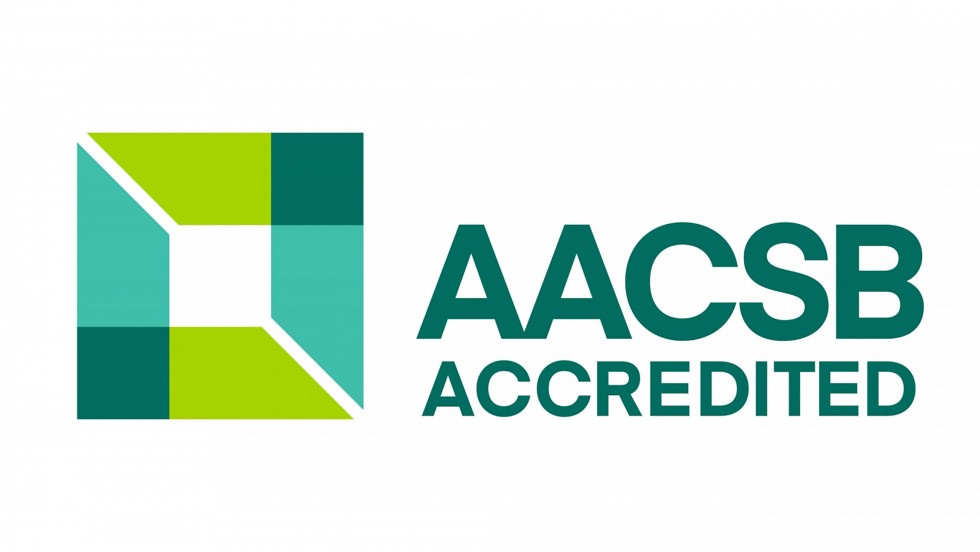Healthcare Management Graduate Certificate
The Healthcare Management Graduate Certificate Program provides business professionals with with a specialized overview of the healthcare system and the management aspects within healthcare organizations.
Finish in 9 to 12 months. Fully online and hybrid options available.
Upcoming Application Deadlines
- Fall Semester: August 1, 2025
- Spring Semester: January 1, 2026
15-Credit Graduate Certificate in Healthcare Management
The Healthcare Management Graduate Certificate Program provides students a specialized overview of the healthcare system and the management aspects within healthcare organizations. Students will focus on the unique aspects of policy, law, marketing, finance and economics related to the healthcare field, with an emphasis on ethical management practices. Students will emerge ready to strategically plan, organize, lead and control resources within a healthcare organization.
Through this certificate, students will:
- Develop skills in the strategic planning, management and daily operations of a healthcare organization.
- Develop leadership, management and administrative skills within a healthcare system or program to ensure community well-being.
- Identify the relevant legal and ethical issues when managing a healthcare program or organization.
- Identify the key economic and financial factors of managing a healthcare program or organization.
- Develop successful marketing strategies and plans for long-term growth within a healthcare program or organization.
This program can be completed fully online or with a mix of in-person and online classes. Its flexible schedule is designed to meet the needs of working professionals.
Students who complete this graduate certificate and wish to pursue their Master of Business Administration may apply these courses toward the master's degree.
Become a Skilled Healthcare Leader
The 15-credit Healthcare Management Graduate Certificate includes five courses to ensure students broaden their knowledge and strengthen their management and leadership skills for roles in medical and health service organizations. The program includes a combination of thought leadership, collaborative projects and hands-on simulations.
This course provides business students with a comprehensive understanding of healthcare management principles, focusing on the unique challenges and opportunities within the healthcare industry. Students will develop a detailed understanding of the structure, function, and culture of healthcare organizations and will explore key topics such as healthcare operations, financial management, policy and regulation, strategic planning, and innovation in healthcare delivery. The course emphasizes applying business principles to improve healthcare organizations' efficiency, quality, and patient outcomes. Topics associated with healthcare technology and health regulation will be explored, along with emerging issues in healthcare management and organizations. Through case studies, industry analysis, and real-world applications, students will develop the leadership, analytical, and decision-making skills necessary to navigate the complex and evolving healthcare landscape.
This course provides a comprehensive overview of public health administration, focusing on the intersection of business principles and public health management. Students will explore the structure and function of public health systems, policy development, healthcare financing, program planning, and population health management. The course emphasizes strategic leadership, financial stewardship, and operational efficiency in public health organizations. Key topics include healthcare policy and regulation, epidemiology, health equity, and crisis management. Students will apply administration principles in developing solutions to modern public health problems and will understand the role of government and other organizations in creating and implementing policies that impact the performance of the public health system.
This course introduces students to legal, ethical, and policy issues in public health and healthcare. Students will explore basic principles underlying the legal system, governmental regulation, the development of policies and legal rules, and how to interact ethically and effectively with the legal system as a public health practitioner. Topics include healthcare reform, regulatory compliance, risk management, patient rights, bioethics, and the role of government in healthcare decision-making. Students will examine the legal context of the relationship between the individual and the community and understand public health regulation in the context of a market-driven system. The course emphasizes the application of business and legal principles to navigate complex ethical dilemmas, ensure regulatory compliance, and develop strategies for effective healthcare leadership.
This course provides an in-depth exploration of marketing principles and strategies tailored to the healthcare industry. Students will examine the unique challenges and opportunities in healthcare marketing, including consumer behavior, branding, digital marketing, patient engagement, and regulatory considerations. The course covers key topics such as market segmentation, strategic communications, healthcare service promotion, competitive positioning, data-driven decision-making, customer-centric approaches, and the role of technology in shaping healthcare marketing strategies. Emphasis is placed on ethical marketing practices, compliance with healthcare regulations, and the impact of public perception on healthcare organizations. Students will connect marketing principles to innovation, operations, and strategy in the healthcare industry to ensure overall healthcare business success in their roles as managers and leaders.
This course provides an in-depth examination of economic and financial management principles as they apply to the healthcare industry. Students will explore the unique financial structures of healthcare organizations, economic theories shaping healthcare markets, and the impact of policy decisions on healthcare costs and access. Key topics include supply and demand, labor issues, healthcare spending, reimbursement models, financial management, cost-benefit analysis, risk assessment, the role of government and private entities in healthcare financing, and techniques for economic evaluation in healthcare. Students will gain an understanding of basic financial management principles, capital planning and financing, financial statements, and budgeting in healthcare organizations and will use these functions for decision-making. Through case studies, data analysis, and financial modeling, students will develop the analytical and decision-making skills needed to navigate the complexities of healthcare economics and finance as effective managers and leaders.
Strong Demand for Healthcare Management Professionals
With many Boston hospitals consistently ranked among the best in the nation and managerial roles expected to grow through 2033, now is a great time to gain the skills to lead within a healthcare organization.
Employment of medical and health services managers is projected to grow 29 percent from 2023 to 2033, much faster than the average for all occupations, according to the U.S. Bureau of Labor Statistics (BLS).
The average salary for a health services manager in Boston is $154,407, according to salary.com. Massachusetts is also among the top-five highest paying states for these positions.
Massachusetts has the second highest concentration of jobs in medical and health service managers nationwide, according to the BLS.
Upcoming Graduate & Professional Studies Events
-
Virtual Information Sessions
Join us for a virtual information session or drop-in session to learn more about our master’s degree and certificate programs.
The Meehan School of Business
The Meehan School of Business empowers students to be adaptive, compassionate leaders in a rapidly evolving global economy. Inside this modern, state-of-the-art business building, marketing students take courses, collaborate and build strong relationships with other working professionals.
Recent Accolades
Organizations involved in assessing U.S. colleges and universities continually cite Stonehill as being among the best in the nation when it comes to value, outcomes and a commitment to making the world a better place. See full list of accolades.
-
U.S. News Ranks Stonehill in the Top 5% Nationally
After assessing U.S. colleges and universities based on 17 measures of academic quality and graduate outcomes, U.S. News & World Report ranked Stonehill No. 73 in the Best Value category out of 1,500 colleges, while also moving up to No. 83 among National Liberal Arts Colleges.
-
Wall Street Journal 2025 Rankings Place Stonehill Among Best Colleges in U.S.
Stonehill College has been recognized again this year by The Wall Street Journal for the value it provides students, especially in the areas of career preparation and character development.
-
Money Ranks Stonehill Among Best U.S. Colleges in 2024
Money’s 2024 Best U.S. Colleges research shows Stonehill among top 10% nationwide.
Contact Information
Graduate & Professional Studies Admission assists students as they explore graduate and professional opportunities offered at Stonehill College.





